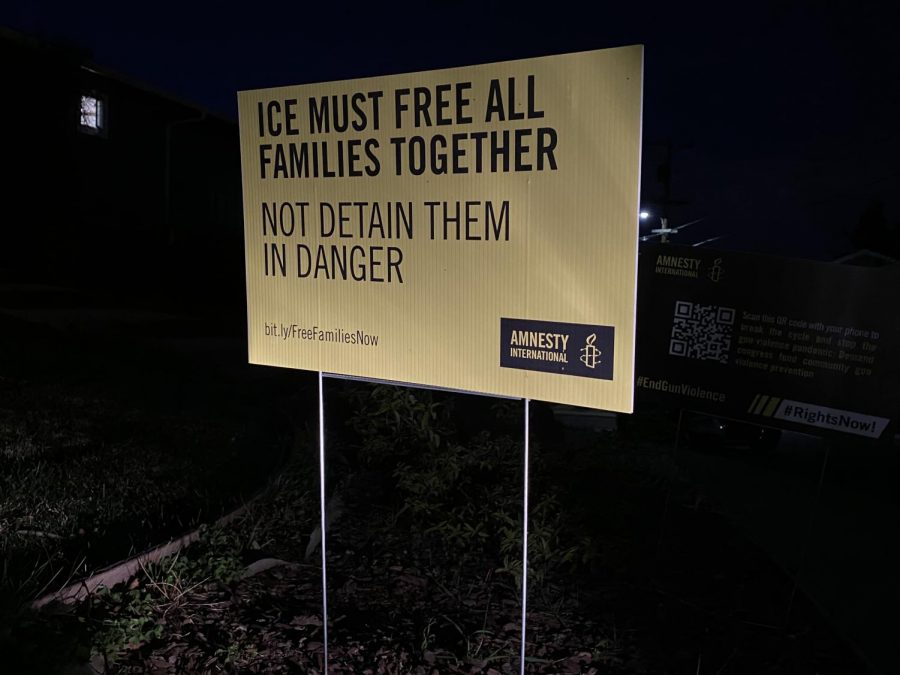In a nation founded on the principle of free speech, activism is an integral part of America. This past year alone, the 2020 election and the Black Lives Matter movement in particular have created many opportunities for citizens to speak out.
However, as the COVID-19 death toll climbs above 400,000, advocates and organizations have had to modify their approach to generating social change; some have taken to the screens, others to pen and paper.
No matter the medium, a better future lies in their sights.
Among the local organizations dedicated to making a difference, the Peninsula Progressive Action Group (PPAG) has not let the COVID-19 pandemic stifle their activism. Founded four years ago by Bay Area citizens in response to President Trump’s election, PPAG aims to spread awareness about political and social issues.
“None of us had been very politically active during the Obama or even Bush administrations,” Ron Piovesan, a co-founder of PPAG, said. “We soon realized that we were asleep at the wheel—if we didn’t fight for the representation we wanted, it wouldn’t happen.”
Originally, PPAG hosted fundraising events in people’s homes. When social distancing mandates were issued, they transitioned to outdoor vigils and virtual events to comply with safety standards.
“On the political front, we started having Zoom fundraisers for progressive candidates like Rep. Josh Harder, Audrey Denney, and Sen. Mark Kelly, who won the Arizona senate race. […] Hosting the vigils was a tough decision; we wanted to do the right thing and comply with the city [regulations] but felt that a virtual event wasn’t going to do the moment justice,” Piovesan said.
On June 1, 2020, the first vigil was set to commemorate George Floyd, an African American man who was suffocated during his arrest, sparking a wave of anti-police-brutality protests.
According to Poivesan, the San Carlos City Council and San Mateo County Sheriff’s Department reached out before the event expressing concern that it could attract violence.
“We took their feedback very seriously. To this day, I’m not sure we made the right decision or abided by their exact wishes, but we did hold a peaceful and safe gathering,” Poivesan said.
On a national level, the tension between protesters and law enforcement has received massive attention. Recent data from the Armed Conflict Location & Event Data Project and the Bridging Divides Initiative has found that police officers are three times more likely to use force against left-wing protesters.
However, locally, progressive activist groups and police departments are cooperating to keep the Bay Area peaceful and safe. Student Resource Officer Ed Berry at the Belmont Police Department expresses confidence in both officers and their communities to maintain this relationship.
“I can only speak for Belmont P.D. Our job has changed because of COVID-19, but not in any other way,” Officer Berry said. “We take pride in doing what’s right and doing things by the books. There are good and bad people everywhere, but this area is great, and we are fortunate to serve it.”
In addition to in-person events, phone banking and letter writing for causes increased in popularity, thanks to groups like Vote Forward, a nonprofit, nonpartisan organization created to help register eligible voters. In 2020, Vote Forward sent over 17 million letters encouraging people to cast or send in their ballots.
San Carlos resident and activist Jessica Rosenberg has found a way to make a difference while staying home by volunteering for organizations like Vote Forward.
“There was a letter-writing campaign as well as phone and text banking that I participated in,” Rosenberg said. “I don’t think I did a single thing in-person because it didn’t feel safe. I felt strongly about the work I was doing and found ways to do it without putting my family at risk.”
Whatever the cause or belief, there are opportunities for everyone to make a difference, regardless of adverse global circumstances. It all starts with knowing what needs to be done.
“I think the first step is doing your own personal inventory,” Rosenberg said. “Contact your elected officials or ask a community that might need extra support how you can help.[…] By having a strong voice, we can make a change.”













